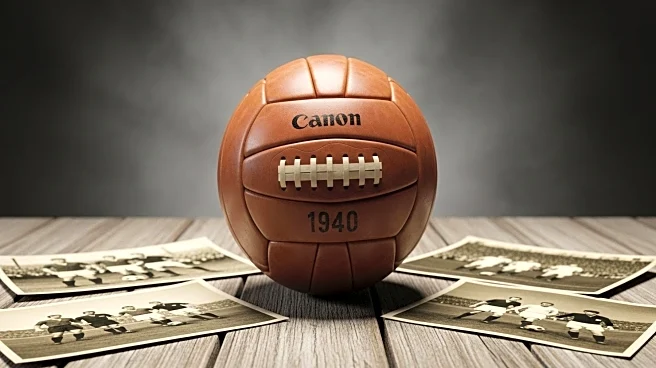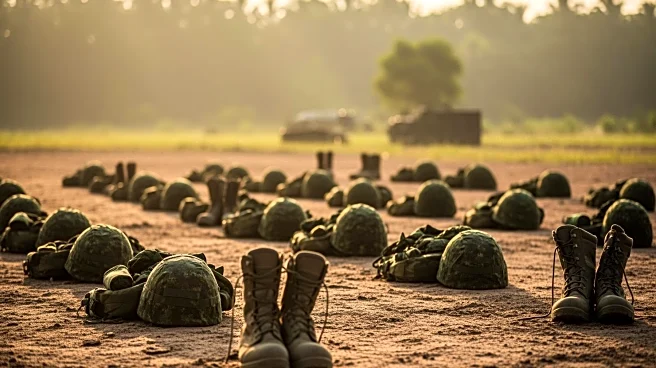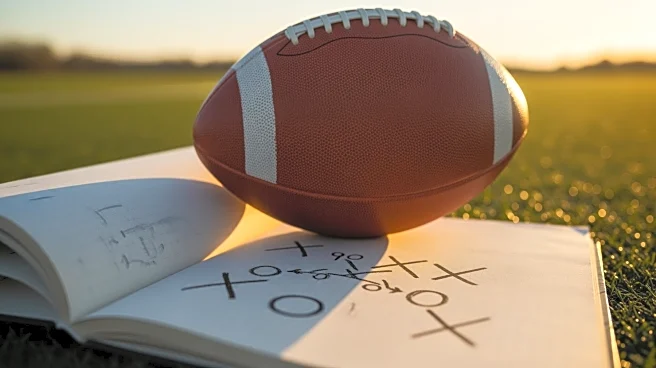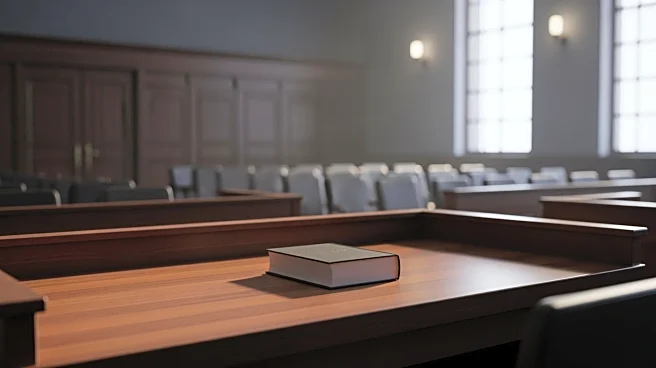What's Happening?
An exhibition titled 'Sports. Crowds. Power.' has opened at the United Nations Palais des Nations in Geneva, focusing on how Nazi Germany used soccer to spread its ideology and persecute Jewish athletes. The exhibition, running from September 8 to 12, coincides with the start of the UN Human Rights Council's 60th session. It showcases the Nazi regime's use of sport to consolidate power and marginalize those who did not fit its worldview. The exhibition also includes stories of resilience from athletes in ghettos and concentration camps, and examines the postwar soccer culture's failure to fully confront exclusion and extremism. Organized by the World Jewish Congress and the German NGO What Matters, the exhibition is supported by Germany's UN mission, UNESCO, and other international bodies.
Why It's Important?
The exhibition serves as a reminder of the dangers of unchecked hatred and persecution, particularly in the context of sports. It highlights the historical manipulation of soccer by the Nazi regime and the ongoing challenges of antisemitism and discrimination in sports today. By bringing this exhibition to the United Nations, organizers aim to raise awareness and inspire action against antisemitism, especially ahead of major sporting events like the 2026 FIFA World Cup. The exhibition underscores the role of soccer as both a reflection of societal prejudices and a potential tool for promoting solidarity and resilience.
What's Next?
Following its display at the UN Palais des Nations, the exhibition will move to Geneva's main stadium from September 15 to 19, where it will include guided tours for schools, soccer clubs, and community groups. This continuation aims to further engage the public and sporting community in discussions about the historical and contemporary issues of antisemitism and discrimination in sports. Organizers hope to inspire players, clubs, and fans to use soccer's universal reach to stand against these issues.
Beyond the Headlines
The exhibition not only addresses historical antisemitism in sports but also prompts reflection on current societal issues. It challenges the diplomatic community to consider the consequences of silence and inaction in the face of discrimination. By examining the uncomfortable history of soccer under Nazi rule, the exhibition encourages a broader dialogue on human rights and democratic values, emphasizing the importance of learning from the past to protect these principles today.










